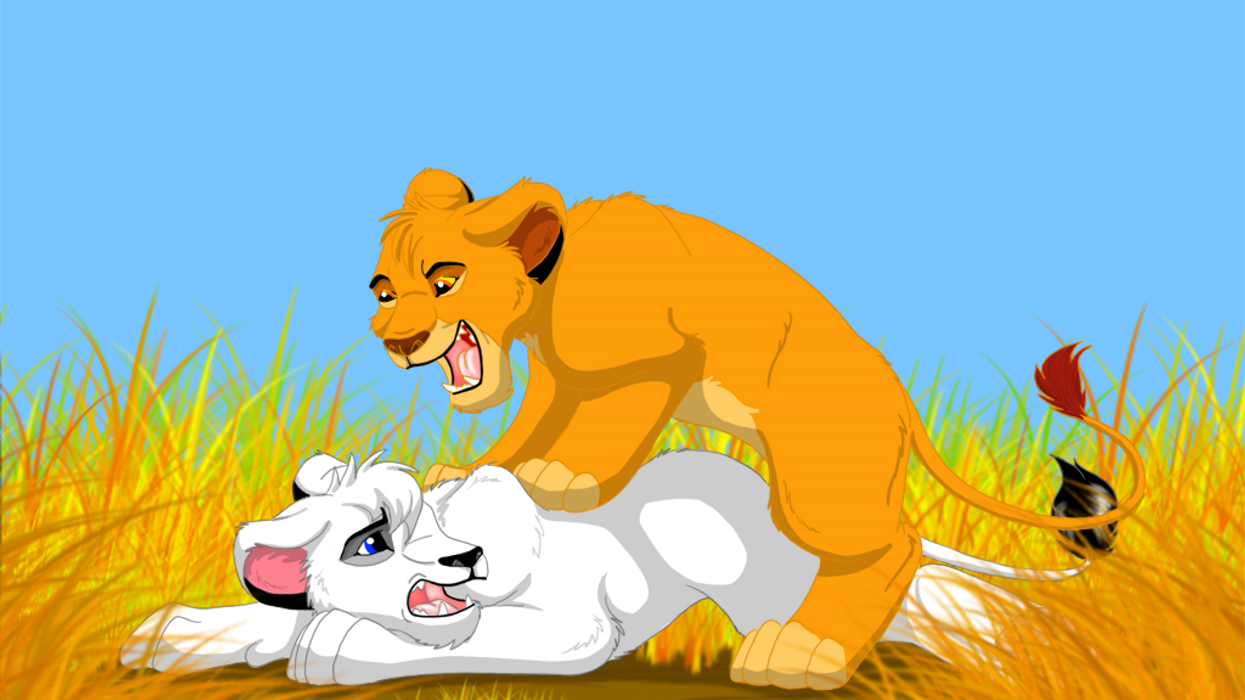Simba vs. Kimba: Does Disney Owe an Apology?
In 1989, two movies about lions who would be king went into production. One based on a cartoon from the '60s and the other marketed as a wholly original idea with no inspiration. Which have you heard of?

The Lion King remake crossed $185M opening weekend. The title is one of the most famous in the world, with merchandise and a Broadway show worth billions of dollars. As the remake of the movie continues to wow at the box office, news outlets like The Hollywood Reporter have recently revived a stunning would-be copyright case that asserts The Lion King may not be so original of an idea.
Today, let's look at the Kimba vs. Simba case, talk about the overarching details, and see what you think.
Before we dig into the fact sheet, check out this video by Alli Kat in which he delves into the controversy!
Kimba vs. Simba: The Backstory
In the early 1950s, a Japanese manga named Jungle Emperor was written. It was about an all-white lion coming of age as the king of the jungle. This manga inspired a 1960s anime series that only ran from 1965-1966. That series then ran all over the globe, with dubs into many languages.
After the series' creator, Osamu Tezuka, died in 1989, there was a reboot of the character for Japanese television. The animated show played there for several years. Tezuka's death also revived a love of the character of Kimba, and plans to create a movie based on the series went underway.
Tezuka was regarded as a great man, and often called the Walt Disney of Japan. His impact on the country and animation cannot be overstated.
At the same time, millions were mourning the passing of Tezuka, Walt Disney animation began to research and preparing for an all-new movie called The Lion King.
It was also about an adolescent lion trying to learn the ways of the world, only to become king of the jungle.
And the story similarities didn't stop there...
Mere days after the Lion King's 1994 release, the Los Angeles Times ran a story about the similarities between the cartoon and the movie, that article was full of quotes by the co-director and Disney executives who swore they had no idea the property existed while they worked on The Lion King.
The Modern Lion King versus Kimba
Now, with the remake raking in the funds, the controversy has reared its head once again.
The article on the similarities between the movies in the Hollywood Reporter offers these people of glaring evidence:
"In his essay "Simba Versus Kimba: The Pride of Lions," Patten includes an extensive list of specific sequences from episodes of Kimba and their analogs in Lion King amid a larger argument marshaling circumstantial evidence that Disney artists and researchers either knew or should have known about Kimba in the early '90s. His list reads, in part:
3-A The Lion King. Zazu flies to Simba clinging to a tree in the midst of the wildebeest stampede and tells him to hold on, his father is coming. 33:08 to 33:14.
3-B Kimba, Prod. #66-24, "Running Wild." Pauley Cracker flies to Bucky Deer clinging to a tree in the midst of the antelope stampede, and tells him to hold on, Kimba is coming. 8:23 to 8:28.
4-A The Lion King. Lighting starts a fire, 75:00 to 75:05, and rain puts it out. 79:58 to 80:05.
4-B Kimba, Prod. #66-42, "The Red Menace." Lighting starts a fire, 0:38 to 0:47, and rain puts it out. 13:37 to 13:52.
Most conspicuous to Tezuka supporters then and now was the scene in which the image of Simba's father, Mufasa, materializes in a cloud bank. Jungle Emperor featured a panel where its main character likewise appeared to his son in the clouds (a version of the scene also appears in the anime series). Frederik Schodt, the author of several books on Japanese manga and a personal friend of Tezuka's, told the Los Angeles Times on July 13, 1994, that the two scenes were "too similar to be a coincidence."
It's hard to read all the similarities and watch the video mashups and not think someone at Disney had seen the cartoon and taken inspiration. Even the original Lion King star, Matthew Broderick, had done an interview where he mentioned Kimba before shooting.
In an interview with the Austin American-Statesman Broderick states "Simba," said this: "I thought [they] meant Kimba, who was a white lion on TV when I was a little kid. So I kept telling everyone I was going to play Kimba."
There's lots of other circumstantial evidence, like animators who worked on the movie that lived in Japan during the 1980s and even reports that Walt Disney was a big fan of Astro Boy, Tezuka's most famous animated work.
Why didn't they sue?
When people who own the rights to Kimba were contacted by news outlets, they basically said suing a company like Disney would bankrupt them so they instead decided to view it all like flattery.
Is there a lesson to all of this?
I'm not a legal expert, but it does seem like some undeniable inspiration was taken from the animated series and put into the film. The best thing you can do is a creator is to copyright your screenplays. You can't copyright an idea, but having a solid script and legal trail of where it came from insulates you when it comes time to press charges.
What's next? Which Companies does Disney own?
You can't throw a stone in Hollywood without hitting a Disney property. But how many companies does Disney actually own? We found an infographic to help us find out.
Click the link to learn more!












